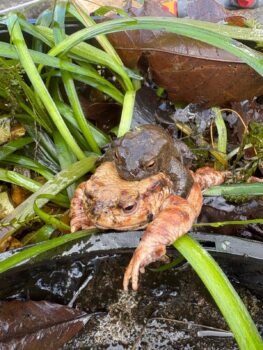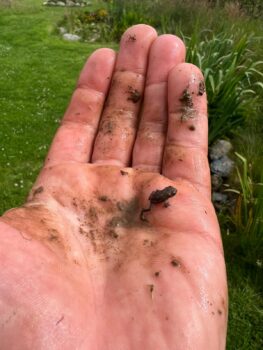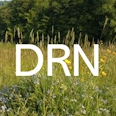The Common Toad’s Decline in the UK: How Rewilding, Wetlands, and Wildlife Ponds Can Help in Devon and Cornwall
The common toad (Bufo bufo) has long been an iconic part of Britain’s countryside, inspiring myths, folklore and even children’s stories like The Wind in the Willows. But behind this cultural heritage lies a stark reality: the once-abundant common toad is becoming alarmingly uncommon.
Recent studies show that toad populations in the UK have almost halved in a single generation. In Devon and Cornwall, where ponds, wetlands, and farmland once rang with spring migrations, the toad’s decline is increasingly visible. Fewer amphibians in the landscape means knock-on effects for the entire ecosystem — from hedgehogs and owls that feed on them, to gardeners who once relied on toads as natural pest controllers.
At Sasaquatics, we work across Devon and Cornwall to restore habitats through rewilding, wetland restoration, and the creation of wildlife ponds — giving amphibians like the toad a fighting chance to recover.
Biology and Behaviour of the Common Toad
Unlike frogs, which prefer damper conditions, common toads spend much of their lives on land. By day they shelter under stones, logs, or within dense vegetation; by night, they emerge to feed on beetles, worms, slugs, and other invertebrates. This makes them a gardener’s ally, providing natural pest control across farms, gardens, and rewilded landscapes in the southwest.
Each spring, toads undertake epic migrations to the ponds where they were born. These journeys can span several kilometres — and tragically, many now involve crossing busy Devon and Cornwall roads, leading to huge losses during breeding season.

Once breeding begins, females lay long strings of eggs in shallow pond margins. Tadpoles emerge, feeding on algae and detritus, before metamorphosing into tiny toadlets that leave the water en masse in summer. Survival is naturally low — but well-designed ponds and wetlands can dramatically improve outcomes.

Why Are Toads Declining in the Southwest?
Long-term monitoring across the UK has shown a 41% decline in common toad numbers since 1985. In Devon and Cornwall, the pressures are particularly intense:
- Road traffic during spring migrations kills thousands each year.
- Loss of ponds and wetlands due to drainage, infill, and development reduces safe breeding grounds.
- Urbanisation and habitat fragmentation isolate populations and block natural movements.
- Decline in invertebrate prey from pesticide use and soil degradation weakens food chains.
- Climate change alters rainfall patterns and shortens breeding windows.
How Rewilding and Habitat Work Can Help
Here in the southwest, we still have the opportunity to restore healthy landscapes for toads and other amphibians. At Sasaquatics, we deliver both strategic advice and hands-on ecological work, tailored to landowners, farmers, communities, and conservation projects.
🌿 Wildlife Pond Design (Devon & Cornwall)
We specialise in creating wildlife ponds across Devon and Cornwall that are designed specifically for amphibians. Unlike ornamental ponds, these are fish-free, with shallow sloping edges, varied depths, and native aquatic plants. They provide safe breeding habitat while attracting dragonflies, newts, and a wealth of biodiversity.
🌱 Wetland Restoration in the Southwest
Restoring old farm scrapes, floodplain wetlands, or reedbeds provides crucial habitat for amphibians while also reducing flood risk, filtering water, and storing carbon. Our wetland projects in Cornwall and Devon show how ecological restoration can deliver multiple benefits.
🦔 Rewilding Consultancy Devon & Cornwall
We apply the principles of rewilding to create connected habitats — hedgerows, meadows, woodlands, and wetlands — that support toads and a wide range of other species. From feasibility studies to management plans, we help landowners across the southwest unlock ecological and financial opportunities.
🌾 Practical Habitat Works
Our team also delivers hands-on ecological services, from pond digging and invasive species removal to wildflower meadow creation. These works are tailored to each site and season, ensuring real results for biodiversity.
Why Devon and Cornwall Are Crucial
The southwest of England is uniquely rich in habitats. Devon’s rolling valleys, moorlands, and farmed landscapes, together with Cornwall’s rugged coastlines and wetlands, provide exceptional opportunities for amphibian recovery. With targeted rewilding, wildlife ponds, and habitat restoration, these counties can become strongholds for the common toad once again.
What You Can Do
- Add a wildlife pond to your garden, smallholding, or farm.
- Protect hedgerows and wild corridors to link habitats.
- Avoid pesticides that kill the invertebrates toads rely on.
- Work with local rewilding and conservation groups to restore wetlands and wild spaces.
At Sasaquatics, we can help you access grants, plan habitat creation, and deliver practical works across Devon and Cornwall.
Conclusion
The common toad’s decline is a wake-up call for all of us. By restoring wetlands, digging wildlife ponds, and supporting rewilding projects in Devon and Cornwall, we can turn the tide. Toads are more than a symbol of Britain’s folklore — they are a vital part of our ecosystems, and with the right action, they can thrive once again in our gardens, farms, and wild landscapes.
👉 Get in touch with Sasaquatics today to discuss rewilding, pond creation, and wetland restoration in Devon and Cornwall. Together, we can make space for toads — and for the wider web of life they represent.






